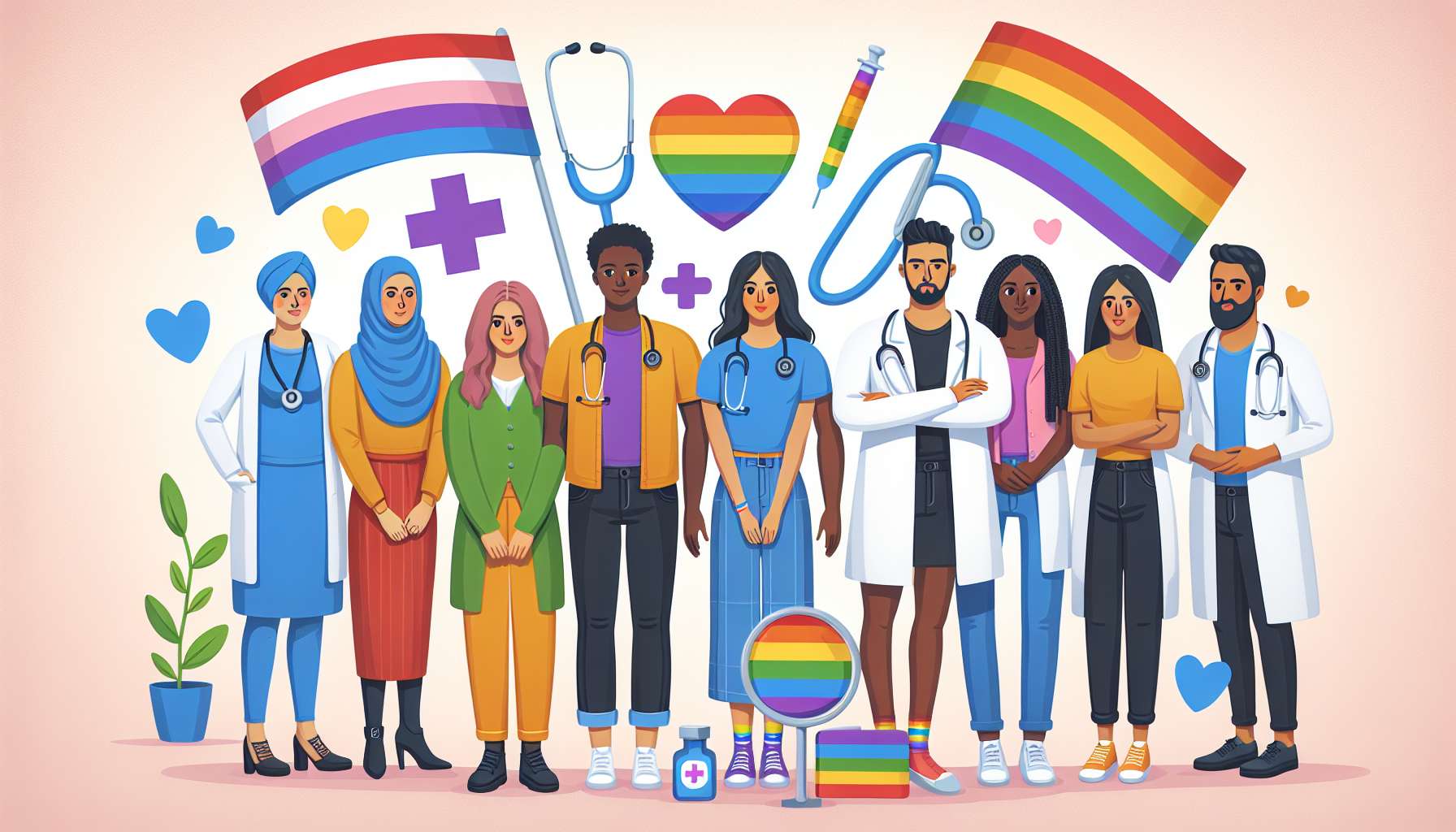The gynecological and urological follow-up of LGBTQ+ people presents specific challenges that require tailored and compassionate care. Indeed, these patients often face access difficulties to this type of care due to discrimination or lack of training among professionals. However, regular monitoring is essential for early detection of pathological conditions and promotion of sexual and reproductive health.
Lesbian and bisexual women thus tend to consult a gynecologist less often, for fear of judgment about their sexual orientation or out of belief that follow-up is less necessary in the absence of relations with men. Yet, they have the same screening needs for female cancers (breast, cervix), STDs, and hormonal disorders. Monitoring pregnancy for female couples also requires tailored care, with attention to issues of access to assisted reproductive technologies and recognition of both mothers.
Gay and bisexual men on the other hand have specific urological needs related to their sexuality. Regular screening for anal STDs (gonorrhea, chlamydia, HPV, syphilis) by sampling is recommended, as well as anal smear to detect precancerous lesions related to HPV. The management of sexual disorders (erectile dysfunction, pains, desire disorders…) requires compassionate listening and openness to diverse practices.
Transgender people have very specific follow-up needs, which vary according to their transition journey. Trans women may require gynecological monitoring, even without genital surgery, to monitor the effects of hormone treatments and detect cancers. Trans men maintain a risk of cervical and ovarian cancer if they still have these organs, requiring suitable follow-up. Reassignment surgeries also require postoperative care and long-term follow-up. Access to these services is often complicated by lack of training among caregivers and discrimination (misgendering, refusal of care…).
Intersex people might have anatomical variations that require specific follow-up, tailored to each case. They are often traumatized by the medical management of their intersex status (early non-consensual surgeries, secrets, maltreatment…) and need empathetic listening.
To properly guide the gynecological and urological follow-up of LGBTQ+ people, the coach must first know well the anatomical specifics and the needs of each population. They can rely on community resources that provide suitable information (associative brochures, dedicated websites…).
The coach must also be able to refer to trained and compassionate health professionals. LGBTQ+ associations often refer sensitized caregivers on their website. Some community health centers offer specialized consultations for LGBTQ+ populations.
Beyond referral, the coach can accompany the person in their healthcare journey, by helping them prepare for consultations and express their needs and worries. Work on self-esteem and assertiveness is often necessary, as experiences of discrimination in medical contexts can be traumatic.
The coach can also raise awareness among their network of caregivers about good practices for welcoming and following up LGBTQ+ people. Guides exist for gyneco and uro care, emphasizing respect for gender identity, confidentiality, compassionate listening, and consideration of anatomical specifics and lifestyles. The coach can distribute these resources and propose trainings.
A few examples of situations:
– A 40-year-old lesbian woman has not had a pap smear for 10 years because she had a lesbophobic experience with her former gynecologist. The coach helps her find a new compassionate practitioner, prepares her to explain her needs, and supports her for this stressful first appointment.
– A gay man wants a full STD screening but is afraid to talk about it to his primary care physician for fear of judgment. The coach explains the importance of regular screening, especially anal, and refers him to an LGBT-friendly sexual health center.
– A postoperative trans woman wants to resume her gynecological follow-up but the practitioners contacted seem helpless in the face of her transgender identity. The coach contacts colleagues to find a trained gynecologist and prepares a small guide for welcoming trans women.
– A trans man has had pelvic pain since his hysterectomy but is afraid to consult after a bad experience. The coach validates his experience of medical transphobia, helps him identify a safe gynecologist, and prepares him to express his fears.
The gyneco and urological follow-up of LGBTQ+ people therefore requires a holistic approach, which considers medical specifics but also psychosocial issues and traumas related to discrimination. The coach plays a vital role in facilitating access to adapted and compassionate care, by referring, supporting and raising awareness. Their role is to promote positive and fulfilling sexual and reproductive health for all, respecting identities and individual journeys.
Key Points:
– LGBTQ+ people encounter difficulties accessing gynecological and urological follow-ups due to discrimination and professional training gaps.
– Lesbian and bisexual women have specific needs for screening female cancers, STDs, and pregnancy monitoring. Gay and bisexual men require regular screening for STDs, notably anal, and tailored management of sexual disorders.
– Transgender people have follow-up needs that vary with their transition journey, including monitoring hormone treatments, cancer screening, and post-surgical care.
– Intersex people might have anatomical variations requiring personalized follow-up and empathetic listening to trauma related to their medical management.
– The coach needs to understand each population’s specifics, refer to trained professionals, accompany individuals in their healthcare journey, and raise caregiver awareness to best practices for reception.
– The gyneco and urological follow-up of LGBTQ+ people requires a holistic approach considering medical specifics, psychosocial issues, and traumas related to discrimination. The coach’s role is to promote access to adapted and compassionate care for fulfilling sexual and reproductive health.
👉 To download docx (Editable) file click here : Click here
👉 To download PDF file click here : Click here
👉 To download MP3 file click here : Click here







